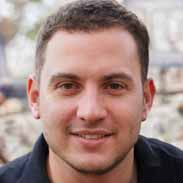Coronary Heart Disease Flashcards, test questions and answers
Discover flashcards, test exam answers, and assignments to help you learn more about Coronary Heart Disease and other subjects. Don’t miss the chance to use them for more effective college education. Use our database of questions and answers on Coronary Heart Disease and get quick solutions for your test.
What is Coronary Heart Disease?
Coronary Heart Disease (CHD) is a major cause of death and disability in the United States and other industrialized countries. It occurs when narrowed or blocked arteries reduce blood supply to the heart, leading to angina (chest pain), heart attack, or even sudden death. CHD can develop gradually over time, but it can also occur suddenly due to a rupture or blockage in one of the coronary arteries that carry nutrients and oxygen-rich blood to the heart muscle.Risk factors for CHD include high cholesterol levels, obesity, smoking, physical inactivity, diabetes, high blood pressure, family history of early coronary artery disease (before age 55 for father/brothers; before age 65 for mother/sisters), male gender (over 45 years old), and postmenopausal women who have not taken hormone replacement therapy. Lifestyle changes such as quitting smoking and increasing physical activity are important steps to reducing risk factors associated with CHD. A healthy diet low in saturated fat and trans-fats may also help prevent CHD by reducing total cholesterol levels. In addition, controlling diabetes through proper nutrition and exercise can help lower risk factors associated with this condition as well. In some cases medications such as statins may be prescribed if lifestyle changes do not produce adequate results on their own.The most common symptom of CHD is chest pain (angina). Other symptoms include shortness of breath after exertion or during rest periods along with fatigue or weakness while exercising or doing other activities that require more energy than normal daily activities demand. If you experience these symptoms it is important talk to your doctor right away so they can evaluate your individual situation and recommend an appropriate treatment plan which could potentially save your life.
























